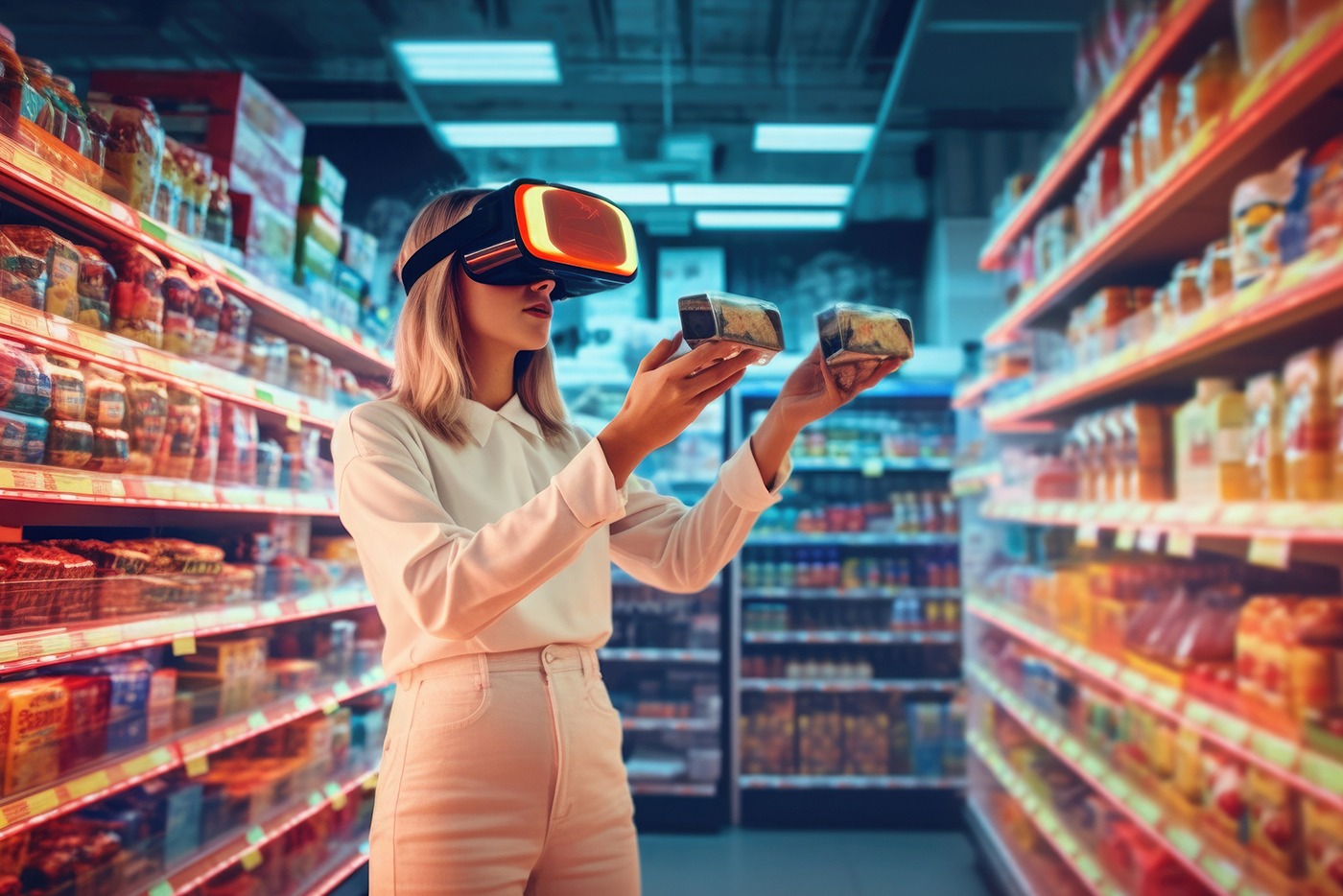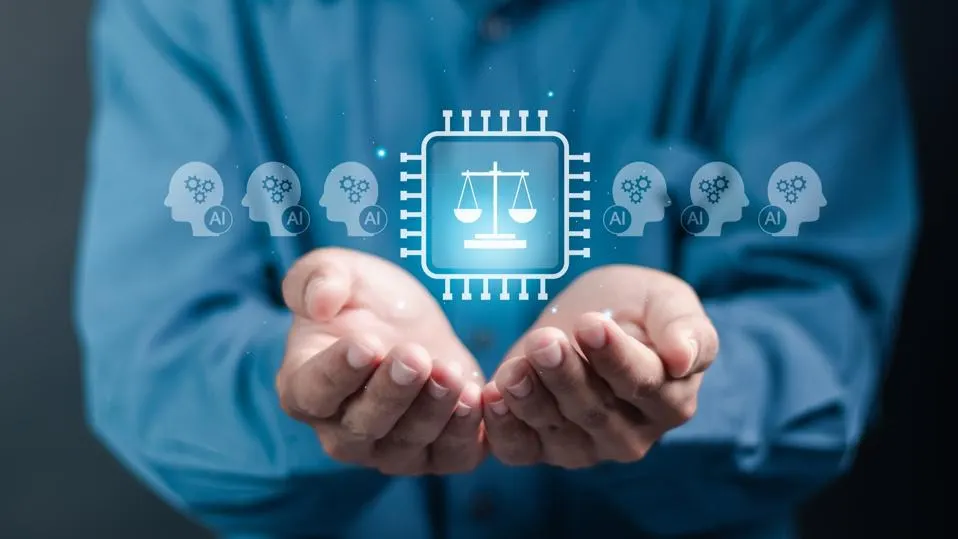Virtual Reality, Real Business: The Impact Of The Metaverse On Companies
14 November 2023
Metaverse has undoubtedly been one of the most talked-about concepts of the year. At the start of 2022, the focus was on Facebook’s surprise re-branding of itself to Meta Platforms. Now, as we head into 2023, the conversation has shifted to Apple CEO Tim Cook’s concerns that it might not take off because it’s too complicated and other commentators suggesting it’s too weird to gain mainstream traction.

The fact remains, however, that the subject is still trending strongly, with major players in all business sectors heavily investing in platforms and presence in newly emerging immersive digital spaces. Whichever technology titan – Zuckerberg or Cook – you happen to agree with, the fact is that it's unlikely that the hype is going to end any time soon!
This means, in my opinion, that if you're in business, it's time to start looking seriously at how this emerging technology is likely to affect you. One of the most frequently used (and, in my opinion, most accurate) terms used to describe the metaverse is "the next evolution of the internet." If this is the case, then it certainly isn’t something that any business wants to miss out on by acting slowly.
So what is the metaverse?
I've written several articles already attempting to lay out the fundamentals and contain useful information. But the fact is, there's a fair bit of disagreement about what the term actually means. To Mark Zuckerberg, it's mostly about virtual reality (VR) – imagine a VR version of Facebook where you meet friends and chat, share information, socialize and work collaboratively with them in an immersive 3D space.
As I said above, however, the most commonly agreed-on definition is that really it’s a catch-all term for “whatever the internet evolves into next.” The mainstream, world-changing internet began in the early 90s with the development of the World Wide Web (web pages) and evolved first with the emergence of social media and then with the mass adoption of smartphones and the mobile internet. It would certainly be foolish to think that this is where it will end and there won't be any further major paradigm shifts that completely alter the online experience.
Each of these shifts has brought immense new opportunities for business, with the arrival of social media marketing and advertising platforms and then mobile apps. So it’s fairly certain that the next evolution – the metaverse – will do, too.
As for exactly what it will look like, well, no one is certain. But the smart money is betting that it will involve immersive, experiential platforms where we adopt a persistent identity (such as an avatar.) These platforms will allow us to socialize, shop, work and play, and everything else we currently do on disparate, disconnected online platforms.
So, how is this likely to affect business? Let's take a look at some of the key ways that it's already being used and how this might evolve in the future:
Marketing
As with previous and current iterations of the internet, the first business use cases of the metaverse clearly center on marketing. In the past year, a host of global brands, from Nike and Disney to HSBC and JP Morgan have launched metaverse initiatives or announced that metaverse will play a part in their strategy going forward. This is hardly surprising given the fact that Citi has said it believes that business in the metaverse will be worth $13 trillion to the global economy by 2030.
The metaverse offers an exciting opportunity to marketers primarily because it represents a new channel of communication with customers. And similarly to social media, search engine marketing and the world-wide-web (WWW) before it, it’s a channel that has the potential to be more immersive and experiential than anything that came before it. In fact, the leap in interactivity and engagement between the 2D, disparate internet of social media and the immersive, persistent metaverse could be comparable to the shift from passive TV and radio advertising of the last century to the analytics-driven, highly personalized marketing of the internet age.
Metaverse platforms can potentially allow businesses and brands to develop an even deeper 360-degree view of their customers and perform more accurate and granular segmentation analytics due to the insight they will have into online behaviors. In turn, this will enable them to provide immersive marketing experiences as well as products and services that are more accurately aligned with our wants and needs.
The Industrial Metaverse
In the industrial metaverse, engineers, product designers and technicians harness the power of collaborative virtual and digital environments to streamline the manufacturing process. A key concept is the digital twin – a digital simulation of a real-world product, structure, process or system that draws on data from its “real” twin to create a computer model that can be manipulated and experimented with in the safety of a virtual environment. Of course, the concept of digital simulation has existed in industry for decades. Adapting it to the metaverse paradigm, however, creates new possibilities due to the collaborative nature of the metaverse environment.
Augmented reality (AR) technology means it’s possible to bring these digital twin models into a real-world environment. For example, builders can stand on a plot of land and see the building they intend to create visually around them. Using headsets, an entire team of architects, structural engineers and site managers can see the building around them and even “edit” it in real-time, adding or removing elements to see how it affects the structure as well as the landscape around it. Information about the cost of the development, as well as the manpower requirements, can be overlayed on the visualizations in real-time. This may sound futuristic and far-fetched, but similar processes are already being used by BMW to accelerate the design and prototyping of new vehicles.
The industrial metaverse consists of the intersection of many cutting-edge tech trends, including 5G networking, cloud and edge computing, and machine learning-driven technologies like computer vision and the Internet of Things (IoT). Industries that are able to pull these together to create the immersive, persistent digital environments that enable industrial collaboration at scale are likely to emerge as leaders in this field.
The Enterprise Metaverse
It isn’t just manufacturing and industrial businesses that are making use of metaverse technology. In today’s post-pandemic world, and as companies and employees explore ways to offer more flexible working arrangements to fit in with changing lifestyles, immersive, collaborative digital tools enable any company to experiment with new and more productive working processes.
The virtual reality workplace is one of the cornerstones of Meta’s Horizon vision, offering collaborative environments where teams can gather. Other tools that are already familiar to millions of enterprise workers around the world – such as Microsoft Teams and Zoom – have built metaverse functionality into their platforms over the past year. Mesh for teams adds avatars to Microsoft’s familiar collaborative working environment, and Zoom has added a feature called Welo, which lets companies create persistent digital environments in which to hold meetings.
Another use case that is quickly gaining traction is team building, onboarding and training. Accenture has developed a metaverse environment called the Nth Floor, designed to allow its tea members to “meet, learn and collaborate in new ways.” All new employees are expected to visit in order to be briefed on specifics they need to know when joining the company. And at Nokia, one team has implemented a weekly 30-minute “lunch and learn” VR learning session.
Is It All Hype?
There's certainly a school of thought that says the concept of metaverse is over-hyped, and all of this is really just existing technologies such as VR, AR and virtual worlds such as Second Life repackaged as something new. However, I believe this misses the point as the metaverse is – or will be – about bringing all of these and more together to enable something greater than the sum of its parts.
Although it's often been described as something that's still a long way into the future, many of the building blocks of the metaverse are already here and, as we've highlighted in this article, are already having a real impact on businesses around the world.
Which elements will still be seen as core to the concept in 10 years time, when the next stage in the evolution of the internet is truly engrained in our lives, remains to be seen. For example, Mark Zuckerberg’s vision of a centralized, corporate-owned, VR-first metaverse may end up being wide of the mark.
One thing I’m confident of, though, is that the flat, screen-based internet isn’t the be-all-and-end-all of how we experience digital realities, and businesses that lead the way in building the next generation of the internet will reap the rewards, just as we’ve repeatedly seen happen in the past.
Related Articles
Will AI Solve The World’s Inequality Problem – Or Make It Worse?
We are standing on the cusp of a new technological revolution. AI is increasingly permeating every aspect of our lives, with intelligent machines transforming the way we live and work.[...]
How You Become Irreplaceable In The Age Of AI
In a world where artificial intelligence is rapidly advancing, many of us are left wondering: Will AI take our jobs?[...]
Why Apple Intelligence Sets A New Gold Standard For AI Privacy
In the rapidly evolving world of artificial intelligence, privacy concerns have become a hot-button issue.[...]
Can Your Device Run Apple Intelligence? What You Need To Know
Apple's announcement of Apple Intelligence has sent waves of excitement through the tech world.[...]
10 Amazing Things You Can Do With Apple Intelligence On Your IPhone
Apple Intelligence is poised to revolutionize the iPhone experience, offering a suite of AI-powered tools that promise to make your digital life easier, more productive, and more creative.[...]
Agentic AI: The Next Big Breakthrough That’s Transforming Business And Technology
The world of artificial intelligence is evolving at a breakneck pace, and just when you thought you'd wrapped your head around generative AI, along comes another game-changing concept: agentic AI.[...]
Sign up to Stay in Touch!
Bernard Marr is a world-renowned futurist, influencer and thought leader in the fields of business and technology, with a passion for using technology for the good of humanity.
He is a best-selling author of over 20 books, writes a regular column for Forbes and advises and coaches many of the world’s best-known organisations.
He has a combined following of 4 million people across his social media channels and newsletters and was ranked by LinkedIn as one of the top 5 business influencers in the world.
Bernard’s latest book is ‘Generative AI in Practice’.










Social Media